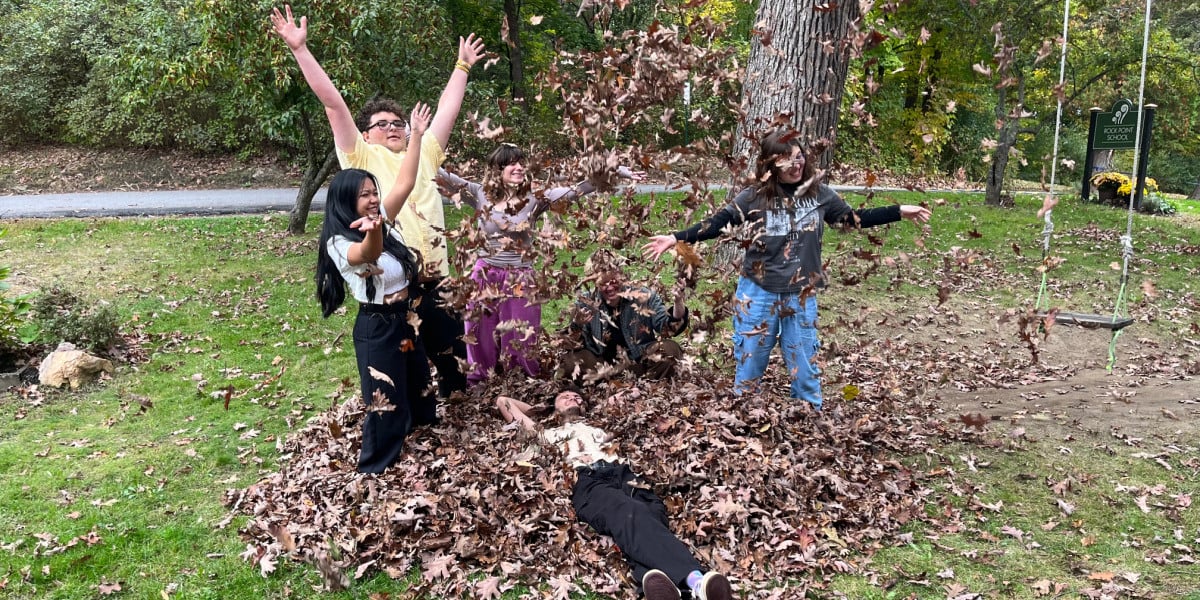Small is Beautiful: Education as if Every Student Really Mattered
In the small, beautiful, lakeside community of Burlington, there are both the advantages of a city — public transportation, rich cultural...

 Wilderness and therapeutic programs can be a significant resource for some teens and families. These programs provide a safe and structured environment where young people can work through a crisis point, address behaviors that are harmful, and gain emotional and social skills that will allow them to flourish. Because many of these programs are designed for short term treatment, families and educational consultants can be left searching for the right “next place” for their teenagers.
Wilderness and therapeutic programs can be a significant resource for some teens and families. These programs provide a safe and structured environment where young people can work through a crisis point, address behaviors that are harmful, and gain emotional and social skills that will allow them to flourish. Because many of these programs are designed for short term treatment, families and educational consultants can be left searching for the right “next place” for their teenagers.
Rock Point School frequently serves teens who have recently completed these kinds of programs, and we have found that helping teens transition after leaving wilderness or therapeutic programs greatly increases their motivation, success, and engagement in school.
Through the admissions process, it is important for families, therapists from the programs, and schools to be candid. Schools need to be clear about what services they can provide, applicants need to be explicit about their needs, and therapists should share the ways a school can best serve the student. Educational consultants are often extremely important at this stage, as they are familiar with both the student and schools and can give an unbiased perspective.
For schools, it is important to have a good understanding of the program the student is leaving.
Providing a school with background knowledge about the previous wilderness or therapeutic placement, as well as the teen’s strengths and needs, can help the school make the transition as smooth as possible or even help an education consultant assess if the school can serve the child.
As students leave programs, they usually receive a transition plan or recommendations for the next placement. For parents, it is important to read and understand the plan and share it with schools you are exploring. As you’re considering a school, ask if can they implement the transition plan. If there are supports that your child will need, be sure to ask how to access those supports. For example:
Wilderness and therapeutic programs do not always focus on academics because they want the child to spend time building emotional and social skills. If the programs do include academic classes, the classes may be self-paced, online, or individualized. It is important that you look at the credits your child has and the requirements of the school you are considering so that you and the school can assess what grade your student should start in and what classes are needed to work toward graduation.
Many students coming from a therapeutic program need to “warm up” to more traditional academic classes. They may need to work at a slower pace, have a reduced course or homework load, or benefit from academic coaching as they start to build their academic muscles. Some students may not be used to big classes and may need to start at a school with a small class size.
If you have done any educational testing, it is very important to provide this to the school to give them information on your child’s learning style, needs, and strengths.
When students leave extremely structured programs, like a therapeutic boarding school, it can often come as a shock to find themselves with unsupervised or unscheduled time. I can remember one student in particular, who for his first week at Rock Point, followed staff members from room to room during his open time because he was nervous about the rules and did not want to make a mistake. Our staff was able to gently guide this student to make positive choices during his free time, and he learned to enjoy his new freedoms.
For many students, the opportunity to make their own decisions and test the skills they have learned in a therapeutic program is exciting, but for some it may cause anxiety. Having staff members who can remind students of the tools they learned in those programs and gently coach them to use their skills in their new environment can be a comfort as students transition.
Some students coming out of wilderness or therapeutic programs, need to adjust to socializing with their peers in a less supervised environment. Because these programs frequently encourage complete honesty and open communication, many students need coaching around gradually getting to know peers in a new school, rather than immediately sharing their whole lives.
Returning immediately to a large school with little structure or support can be very overwhelming for some students coming out of therapeutic or wilderness programs. Schools that are able to provide a structure where students can gradually earn more freedom and independence, as well as get some mentoring and coaching from staff, often help students transition comfortably and successfully.
Once you have found the right school, what is the right amount of time between finishing a therapeutic or wilderness program and starting school? We encourage students to come directly to us or perhaps spend a long weekend with their family, if that is important. Sometimes students who have gone home for extended periods can quickly return to behaviors seen before wilderness (perhaps staying in bed, being on the computer for long periods, avoiding friends and family, etc.). The structure that a boarding school provides can be very helpful for teens coming out of a therapeutic or wilderness program.
It is also important to look at the school calendar. Is there a vacation or holiday coming up soon after they arrive? If so, what structures and supports can be put in place while they are home to make the transitions most effective. Check out this article on making the most of school vacations for some ideas on how to provide structure and support for your student.
We believe that students who have grown a great deal in their wilderness or therapeutic programs, have new and wonderful insights and strengths, and are ready to be leaders in school. Helping students transition smoothly allows them to retain and use the skills they learned in their therapeutic program, while continuing on their path of growth.

In the small, beautiful, lakeside community of Burlington, there are both the advantages of a city — public transportation, rich cultural...

Adolescence is a time of enormous growth and self-discovery. As teens navigate who they are, how they fit in, and what matters to them, they need...

“But what do you do in the winter?” is a question that I hear frequently from people outside Vermont when they learn about our small boarding and day...